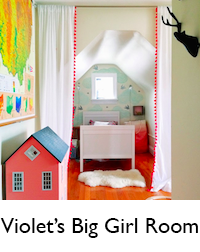
1. Get on the same page - Make sure you discuss finances with your partner (preferably pre-marriage/moving in together) Here are some good questions to ask:
- Do you want a joint bank account? Separate? A combination?
- What are your financial goals? To own your own home? Travel? Save for retirement?
- Do you both plan to work? What about when/if you have children?
- Who will be in charge of paying the bills?

2. Track your spending - We do this by using our credit card for all of our purchases (with rewards points - bonus!) and linking our credit card account to Mint.com. This is an incredibly simple and amazing site that helps you to see where you are spending your money. It will make pie charts for you, compare how much you spend on groceries to the average family, etc.

3. Create a budget - After tracking your expenses for a month or two, you should be able to see where your money is going. The next step is to make a decision on what you want to spend less, more, or stay about the same. It is super easy to create a budget on Mint.com as well, but before I discovered this site, I used a good old Excel spreadsheet for our budget.
4. Pay down debt - We didn't start out with a huge amount of debt - we pay off our credit cards in full at the end of each month (which helped us get a kick butt credit score). We did, however, have the usual suspects - car payments and student loans. We also had a credit card that was 0% for a year that we used for some of our home improvements and a new mattress and boxspring. The big culprit was our mortgage and home equity loan (we did 100% financing at the height of the housing bubble - basically an 80/20 mortgage. We don't recommend it.)

Currently, we have both vehicles paid off, the 0% credit card paid off, and our student loans paid down to around $5K. We took the money we were using to pay on those things and put half of it toward our home equity loan and half toward savings. Our home equity loan will now be paid off in less than three years - woo hoo!
5. Start saving - One thing that got us into this economic mess was the fact that people have stopped saving. It's hard - trust me, we know. But one thing this economy has taught us is you need a cushion. We are currently working on building up an emergency fund to use in the event of some sort of catastrophe - one of us gets sick, loses our job, etc. Ideally we'd like to have six months of our income saved. We are definitely not even close, but we're making progress little by little.
 Our other savings account is for our goals. For example, when we start a family, I'd like to stay home for half of a school year. We'd also like to do a few teensy home improvements (new garage roof, new bathroom, new kitchen, recarpet the second floor...) We like to use HSBC.com (another popular site is ING.com) for our savings, as it has a slightly higher interest rate than our bank. Also, keeping our money separate from our regular account helps us not to steal from the
Our other savings account is for our goals. For example, when we start a family, I'd like to stay home for half of a school year. We'd also like to do a few teensy home improvements (new garage roof, new bathroom, new kitchen, recarpet the second floor...) We like to use HSBC.com (another popular site is ING.com) for our savings, as it has a slightly higher interest rate than our bank. Also, keeping our money separate from our regular account helps us not to steal from the 
So that's it. No crazy financial gymnastics here. Stick to the basics, baby, and you'll be in financial heaven in no time! (Or at least avoid its counterpart...)












0 comments:
Post a Comment